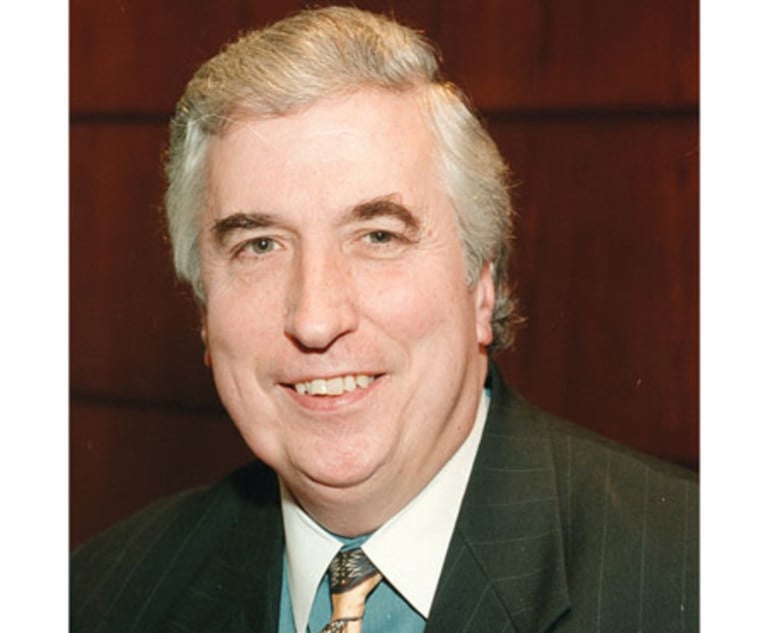 John C. Coffee Jr.
John C. Coffee Jr. Legal 'Leakers': Can They Be Criminally Prosecuted?
The need to invoke the criminal sanction seems doubtful, particularly because the disclosure of the leaker's identity (at least in the case of Justice Alito's opinion) is likely to be career-ending.
May 18, 2022 at 12:30 PM
8 minute read
By now, every lawyer has participated in a discussion about the leaker who gave Politico a copy of Justice Samuel Alito's draft majority opinion overturning Roe v. Wade. Many feel this leaker should be indicted for a felony, disbarred, censured, or, best of all, buried alive under the amicus briefs in Dobbs v. Jackson Women's Health Organization. Few have examined, however, the legal basis for any such prosecution.
All seem to agree that the leaking of Justice Alito's opinion was unprecedented, but they are wrong. Leaking is more common than they suspect. In fact (as others have pointed out) in 1919, Ashton Embry, the clerk to Justice Joseph McKenna, resigned in disgrace and was later indicted for leaking the Court's decisions prior to their public release to traders who bought and sold securities based on them. Although Embry was indicted, the charges were eventually dropped. No federal criminal statute clearly applied. 1919 was well before the passage of the federal securities laws (and thus there was no Rule 10b-5). Nor had the mail and wire fraud statutes yet been expanded to the outer limits that they reached in the 1980s. Even the phrase "insider trading" would have only drawn a blank uncomprehending stare at that time.
This content has been archived. It is available through our partners, LexisNexis® and Bloomberg Law.
To view this content, please continue to their sites.
Not a Lexis Subscriber?
Subscribe Now
Not a Bloomberg Law Subscriber?
Subscribe Now
NOT FOR REPRINT
© 2025 ALM Global, LLC, All Rights Reserved. Request academic re-use from www.copyright.com. All other uses, submit a request to [email protected]. For more information visit Asset & Logo Licensing.
You Might Like
View All
Tortious Interference With a Contract; Retaliatory Eviction Defense; Illegal Lockout: This Week in Scott Mollen’s Realty Law Digest


Court of Appeals Provides Comfort to Land Use Litigants Through the Relation Back Doctrine
8 minute read
Skadden and Steptoe, Defending Amex GBT, Blasts Biden DOJ's Antitrust Lawsuit Over Merger Proposal
4 minute readTrending Stories
Who Got The Work
J. Brugh Lower of Gibbons has entered an appearance for industrial equipment supplier Devco Corporation in a pending trademark infringement lawsuit. The suit, accusing the defendant of selling knock-off Graco products, was filed Dec. 18 in New Jersey District Court by Rivkin Radler on behalf of Graco Inc. and Graco Minnesota. The case, assigned to U.S. District Judge Zahid N. Quraishi, is 3:24-cv-11294, Graco Inc. et al v. Devco Corporation.
Who Got The Work
Rebecca Maller-Stein and Kent A. Yalowitz of Arnold & Porter Kaye Scholer have entered their appearances for Hanaco Venture Capital and its executives, Lior Prosor and David Frankel, in a pending securities lawsuit. The action, filed on Dec. 24 in New York Southern District Court by Zell, Aron & Co. on behalf of Goldeneye Advisors, accuses the defendants of negligently and fraudulently managing the plaintiff's $1 million investment. The case, assigned to U.S. District Judge Vernon S. Broderick, is 1:24-cv-09918, Goldeneye Advisors, LLC v. Hanaco Venture Capital, Ltd. et al.
Who Got The Work
Attorneys from A&O Shearman has stepped in as defense counsel for Toronto-Dominion Bank and other defendants in a pending securities class action. The suit, filed Dec. 11 in New York Southern District Court by Bleichmar Fonti & Auld, accuses the defendants of concealing the bank's 'pervasive' deficiencies in regards to its compliance with the Bank Secrecy Act and the quality of its anti-money laundering controls. The case, assigned to U.S. District Judge Arun Subramanian, is 1:24-cv-09445, Gonzalez v. The Toronto-Dominion Bank et al.
Who Got The Work
Crown Castle International, a Pennsylvania company providing shared communications infrastructure, has turned to Luke D. Wolf of Gordon Rees Scully Mansukhani to fend off a pending breach-of-contract lawsuit. The court action, filed Nov. 25 in Michigan Eastern District Court by Hooper Hathaway PC on behalf of The Town Residences LLC, accuses Crown Castle of failing to transfer approximately $30,000 in utility payments from T-Mobile in breach of a roof-top lease and assignment agreement. The case, assigned to U.S. District Judge Susan K. Declercq, is 2:24-cv-13131, The Town Residences LLC v. T-Mobile US, Inc. et al.
Who Got The Work
Wilfred P. Coronato and Daniel M. Schwartz of McCarter & English have stepped in as defense counsel to Electrolux Home Products Inc. in a pending product liability lawsuit. The court action, filed Nov. 26 in New York Eastern District Court by Poulos Lopiccolo PC and Nagel Rice LLP on behalf of David Stern, alleges that the defendant's refrigerators’ drawers and shelving repeatedly break and fall apart within months after purchase. The case, assigned to U.S. District Judge Joan M. Azrack, is 2:24-cv-08204, Stern v. Electrolux Home Products, Inc.
Featured Firms
Law Offices of Gary Martin Hays & Associates, P.C.
(470) 294-1674
Law Offices of Mark E. Salomone
(857) 444-6468
Smith & Hassler
(713) 739-1250






